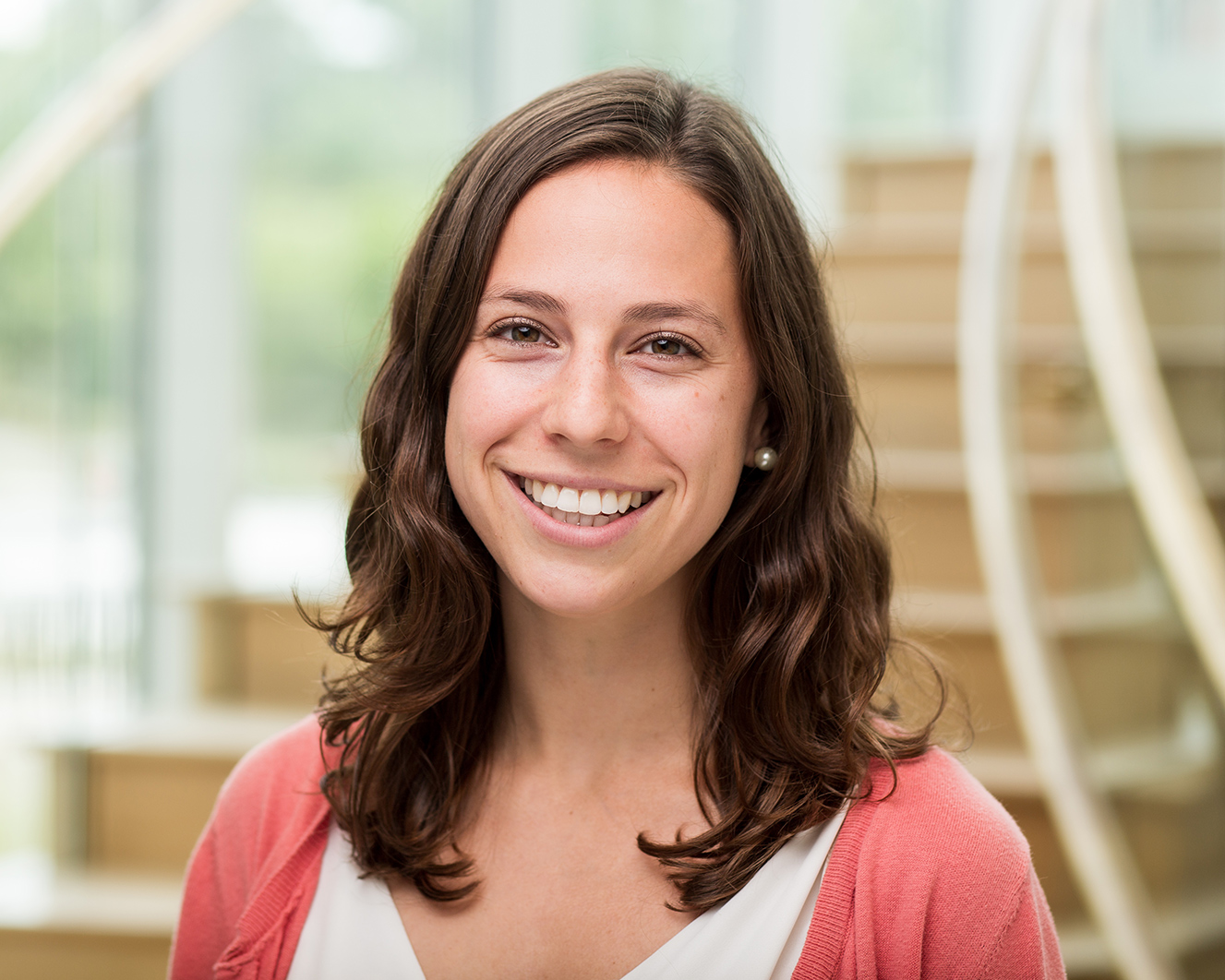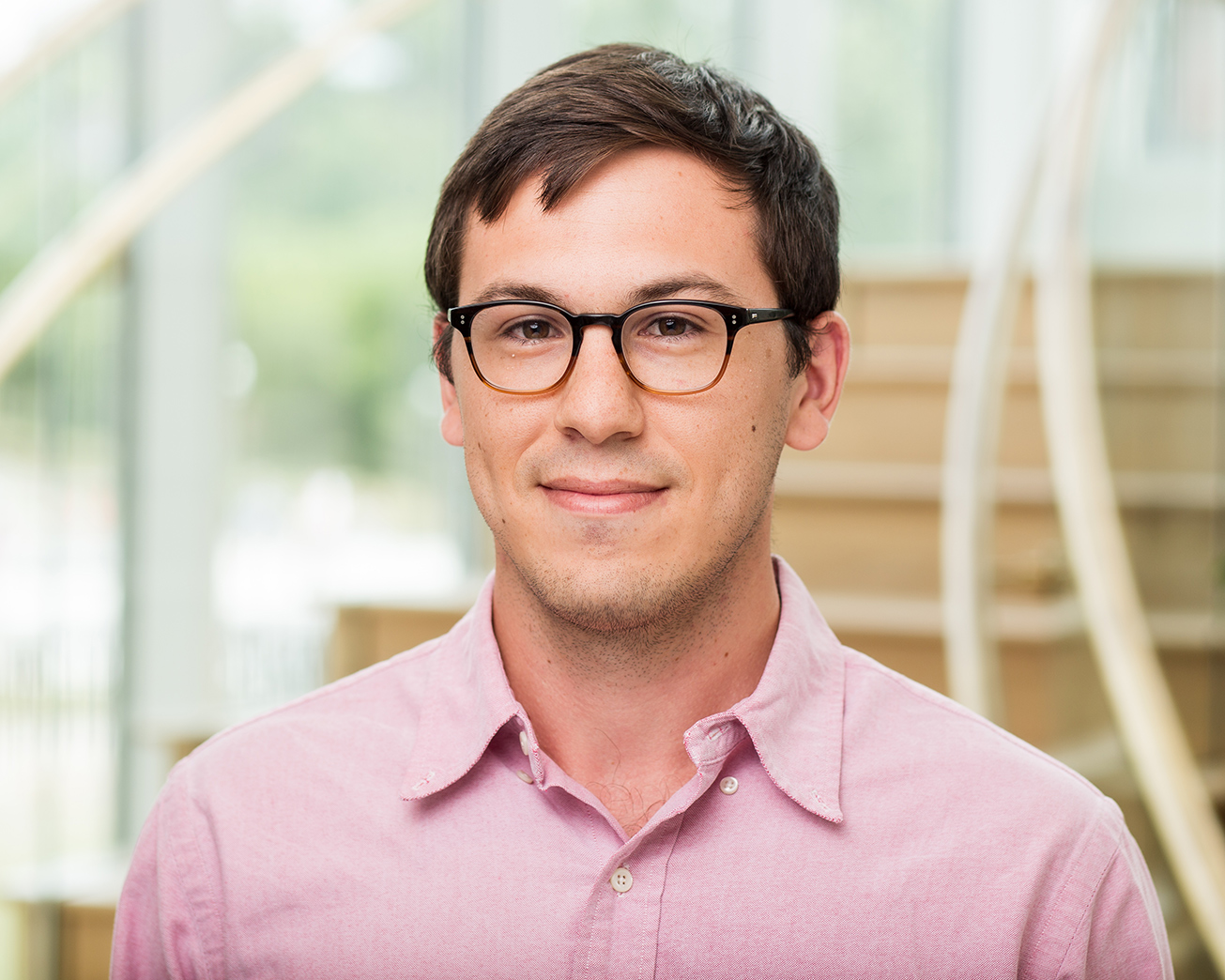The Hybrid MPH Class of 2021 poses for a group photo during their orientation in the summer of 2019.
Amidst the Pandemic: Dartmouth MPH Practicums Promote Crucial Change in Public Health
The Class of 2021 in Dartmouth's online/on-campus hybrid MPH program represents an exceptional group of healthcare leaders. They rose above the challenges of working through a global pandemic while balancing full-time jobs and pursuing their degree to successfully complete their field internships (Applied Practice Experience) for the program. Below, students share the impact of their work on their professional goals and their ambitions for improving health and healthcare in their communities.
- Healthcare Analytics for COVID-19 and Anchor Mission
- Organizational Correlates of Treatment Facilities Offering Detoxification Services
- Development of Statewide Cost Growth and Quality Benchmarks and Primary Care Spending Targets in Connecticut
Healthcare Analytics for COVID-19 and Anchor Mission
Rebecca Brandes, MPH'21
The onset of COVID-19 shifted the focus of Rebecca Brandes’ project altogether.
At UMass Memorial Medical Center, part of Central Massachusetts’ most extensive health system, Brandes first worked with the Office of Clinical Integration. There, she would manage health equity work and create an inventory of measures related to implementing their Anchor Mission, a system-wide initiative to improve community wealth and equity.
However, with the urgency of COVID-19, the mission’s work was put on pause. Her team became focused on reporting COVID-19 analytics to the UMass Memorial health system and the surrounding city of Worcester to monitor information on positive cases and testing efforts.
Brandes’ role turned to project managing, a process for gathering and assessing the inundation of data and preparing weekly reports on the pandemic’s impact on Worcester, the second-largest city in New England. The data they collected also gave her firsthand insight into some of the disparities brought to light by the pandemic. For example, the Hispanic population represented 21 percent of the community but made up nearly one-third of the positive cases.
“I was able to witness how disparities by race and neighborhood brought the health system and city together for data sharing and strengthened partnerships around equity, including starting a health equity taskforce as a result,” Brandes says.
In her full-time job as a project manager at the Institute for Healthcare Improvement, Brandes is a seasoned project leader. She says her practicum gave her the unique perspective of working directly inside a healthcare system and experiencing healthcare's dynamic, proactive work on improving population health and equity.
Organizational Correlates of Treatment Facilities Offering Detoxification Services
Jennifer Murray, MPH'21

Jenna Murray’s practicum work uncovers new priorities for ensuring healthcare organizations are adequately meeting the known needs of patients undergoing medical detoxification.
More than 20 million Americans struggle with alcohol and or drug addiction, yet less than 11 percent receive treatment. Murray’s project is the first to assess the organizational capabilities of facilities offering detoxification services, including access to social services to support long-term recovery, to determine the spectrum of services being offered.
Murray conducted a secondary data analysis of the 2018 National Survey of Substance Abuse Treatment Services, which contained data from nearly 15,000 public and private treatment centers in the United States. Among her key findings, she noted that detoxification centers were 10 percent less likely to offer childcare, 50 percent less likely to accept sliding payment scales to make payments more affordable, and 20 percent less likely to accept Medicaid. These factors are barriers to making detoxification services more accessible and supporting a successful life in recovery, Murray says.
“My top takeaway from the project is that social inequality and systemic barriers in the United States healthcare system cannot be overcome by a person's desire for sobriety or recovery, no matter how strong it might be," says Murray, who is currently drafting a manuscript of her findings for publication.
Murray says her applied practice experience solidified her interest in pursuing substance misuse research with an emphasis on social determinants of health. Her long-term goal is to obtain her Ph.D. Outside of her MPH studies, she is currently completing a two-year fellowship at the National Institute on Drug Abuse with the Native American program in the Epidemiology Research Branch.
Development of Statewide Cost Growth and Quality Benchmarks and Primary Care Spending Targets in Connecticut
Jason Prignoli, MPH'21
Improving access to care is a key focus in Jason Prignoli’s applied practice experience. Prignoli worked in the Office of Health Strategy (OHS) in Connecticut in support of a state executive order put forth to promote equal access to high-quality primary care while controlling costs.
As part of his work, Prignoli created the testimony that OHS broadcasted on television to help advance the legislation. He also edited a version of the bill that circulated through the state's House of Representatives and helped to provide a public response to address the concerns received from insurers, healthcare organizations, and other stakeholders about the bill. Additionally, using state federally qualified health center data, he co-developed a method for tracking uninsured and undocumented individual healthcare expenditures for the state, which can be incorporated into a cost benchmarking framework.
Through his work, Prignoli connected with stakeholders at both the state and federal levels, which gave him new insights into how policy and industry interact to impact how healthcare is delivered, financed, and organized.
"Dartmouth's hybrid MPH program and ultimately my practicum provided me exposure to sides of our country’s healthcare system that I wouldn’t have necessarily had access to otherwise,” says Prignoli, whose background is in healthcare venture capital and strategy consulting.
Prignoli says he looks forward to applying the skills and experience he gained to his current position as chief of staff for a health technology startup.
POSTED 1/26/2021 AT 09:52 AM
GET IN TOUCH
To arrange a media interview, please contact:
geisel.communications
@dartmouth.edu

